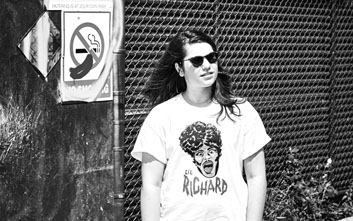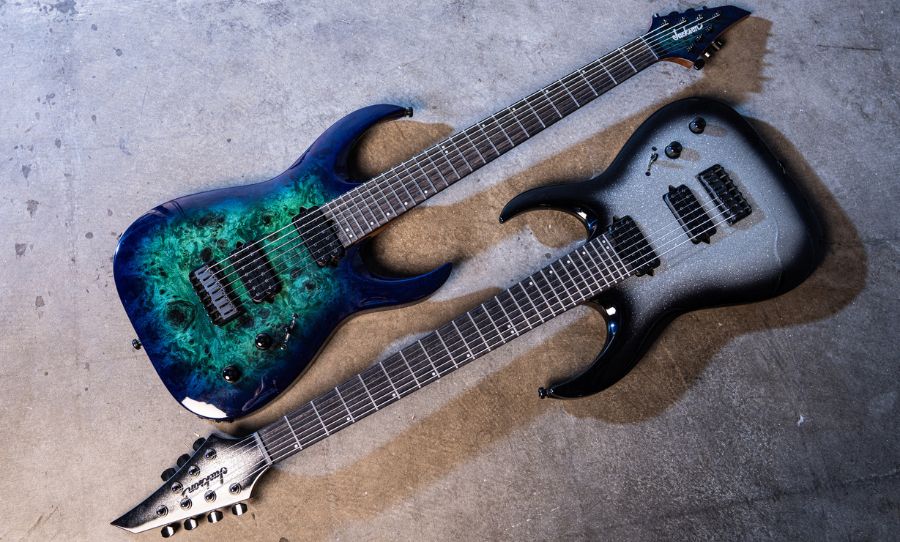After enjoying just about the hastiest possible start Australian music can offer, Alex Lahey independently released her acclaimed debut album I Love You Like A Brother in 2017.
During a recent stint in Sydney, we invited Alex into the studio for a solo rendition of Perth Traumatic Stress Disorder on a Fender California series acoustic.
Right before the performance, we sat down for a chat.
This article and more are available in print in Happy Mag Issue 7. Grab your copy here.
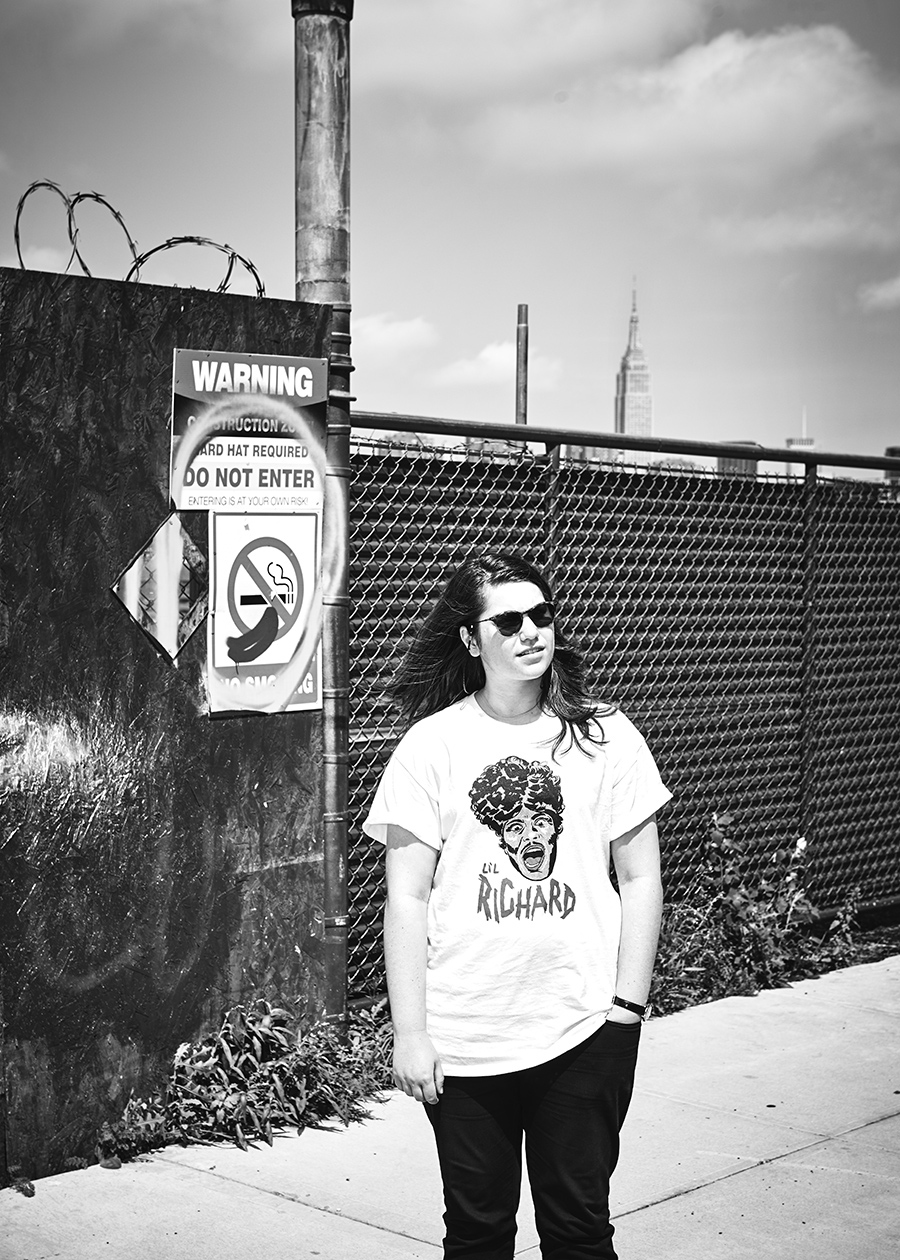
Before she stepped into Enmore Audio for a rare acoustic performance of Perth Traumatic Stress Disorder, we find out what being a guitarist means to Alex Lahey.
HAPPY: Hi, thanks for coming.
ALEX: Thanks for having me.
HAPPY: Anytime. So early this year it looks like you had your first month off in quite a while. Feeling a little more refreshed?
ALEX: Yeah. It took me a while to settle in to time off though, it was weird. I remember talking to my drummer about it, and it took like three weeks to be ok with not doing anything.
HAPPY: You can go a bit stir-crazy when you have nothing to do.
ALEX: It was weird, but now I’m in a phase where I’m super excited to be working again and I’ve been writing heaps and that sort of stuff. But it was weird to allow my brain and my body to just check out for a little while. Hopefully I’ll get more used to that dramatic shift after tours, and that sort of thing, because that was really my first time, it’s the first time I’ve released a record. So hopefully it’ll get easier… but it was definitely well needed. And it was more of a struggle to allow myself to do than I’d anticipated.
HAPPY: You anticipated the next question – were you even able to disconnect? Or did you keep slipping back into writing, jamming, that sort of stuff?
ALEX: I wanted to write, and for a while I couldn’t. And I think that was ‘cause within me it was like, chill out, but as soon as I was able to do that, regroup and replenish whatever I needed, I just naturally fell back into doing that kind of stuff. Yeah, ‘cause it feels weird when I’m not writing or don’t have the urge to write. I’ve always been a writer, long before touring or recording ever came along I’ve always been writing, so it was kind of strange not to be doing it. But I just needed to take the time off.
HAPPY: Writing’s quite therapeutic for you then, and I understand that. Is playing guitar, or at least playing music out loud similar for you?
ALEX: Yeah, I miss playing music when I’m not doing it. I mean, I don’t feel like I need to practice or anything like that, but I feel like in my downtime as well I listen to a lot of music, if I listen to stuff that I really like or songs I want to connect with or understand, I will then learn them. And that’s a really nice thing to do, play music that isn’t yours.
HAPPY: Especially when you’re playing…
ALEX: Songs that you wrote two years ago? Yeah, because you’re playing them again and again and again. Yeah.
HAPPY: What else keeps your sanity in check?
ALEX: I’ve been reading a lot, which is good. One of the things that you don’t get to do much when you’re touring, or don’t get to do at all, is see your mates. Going out and seeing friends and not being like ‘oh, are you going to be in town on this date?’ and stuff like that has been awesome. Living a relatively normal life has been very, very nice, while also allowing myself to do a bit of nothing.
HAPPY: You’re very open about… pretty much everything. Were there people in your life that encouraged this, or was it something you realised that you had to do through your art?
ALEX: I think a bit of both. Writing music is a very reflective and introspective process at times… it doesn’t have to be, but at times can be, and is. So by default, you end up looking at a lot of your practices, and what makes up your life and your time, and you kind of assess it critically. But also I reckon that good friends and family, you keep an eye on those around you and if you feel like someone’s dropping the ball a bit or not seeming like themselves, checking in is always good to do. We’ve all had people do that for us, and most people have done that for someone else that they care about. So it’s a bit of both, it’s a bit from within and a bit from people in your life.
HAPPY: You’re trying to do the same, then?
ALEX: Yeah! I think it’s exercising emotional intelligence. It’s also just being a good friend, or being a good daughter or sister, whatever role you play in their life. Just checking in, or even going out for a drink, you know?
HAPPY: To a wider audience too? Would you say you accomplish something like that with your fans?
ALEX: I think that there’s definitely unspoken things that happen at my shows that are reflections of the messages in the songs, or what I say in interviews and stuff like that. Like girls always feel comfortable to be up the front, there’s never any pushing around or crap behaviour, and if there is it generally gets brought to the attention of those who can do something about it. Yeah, I think there’s things like that, because of the songs or whatever, are reflected when you have direct engagement with people who are listening to your music.
HAPPY: That’s the vibe you want, I’d say. Being open too, it makes people feel like they know you. It’s like going to a gig with a friend, rather than some muso on a pedestal.
ALEX: Yeah I can’t really do that. The whole rock god thing is great, and there’s a place for it, but I don’t think that’s my place. I don’t feel the need to fill that for someone.
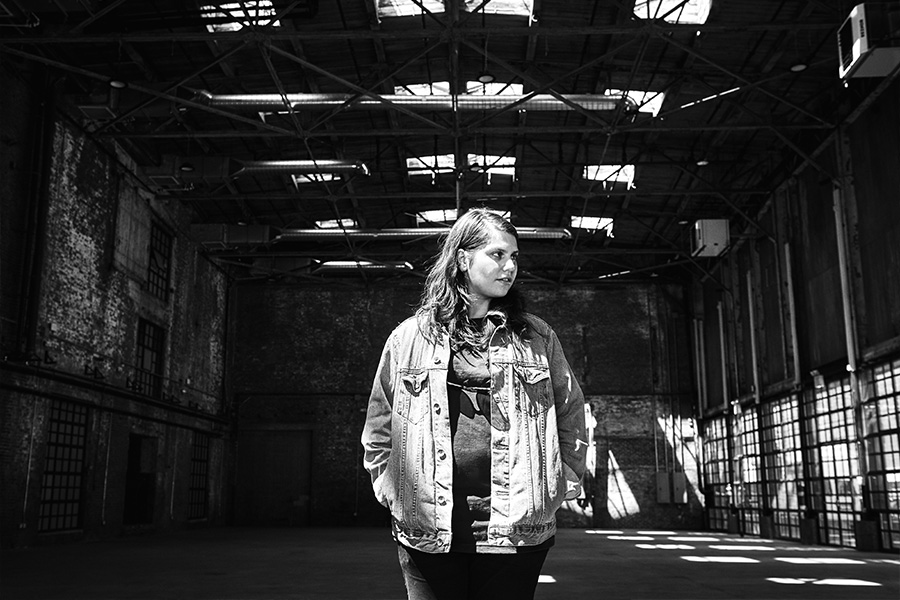
HAPPY: I guess being independent kind of fits with that image. I noticed you released your album on your own label Nicky Boy Records, why the choice to stay independent?
ALEX: Because I’d already made my first EP before I had any offers from labels, or any interest from the industry period, and when we put that out myself, the model checked out. So that’s the simple explanation. I think there’s a lot of value and merit to record labels, and being associated with record labels, they’re not out to fuck artists. They actually want to release music, that’s the whole purpose. They’re a business, sure, but at the end of the day they want to put music out. Sure, things happen like in any other industry, but at the end of the day that’s the MO. So I’m not taking a stand or anything, I just released music myself the first time… and the model checked out.
HAPPY: So why change?
ALEX: Exactly. Any sort of engagement that came following the EP, we looked at it, assessed it and said ‘we’re still doing ok’. I will say though, I do release my music with a label overseas. The Nicky Boy case, that’s only for Australia and New Zealand.
HAPPY: I think that’s the case for a lot of artists in Australia.
ALEX: Yeah, it’s about resourcing. I think in Australia and New Zealand, by the time the first EP had come out, the project was already well-resourced enough within the territory to sustain itself, and overseas we needed the help. So that’s what it comes down to.
HAPPY: Nice.
ALEX: To be very frank. That’s a very numbers, black and white, answer… but I think independent music is awesome! That real grassroots vibe, the community that comes with it, and there is this really nice understanding with artists that follow the same kind of path. But at the same time, I feel like the industry’s in a climate now where… no one has money. You know? We’re all pushing through, I don’t think it’s an us and them thing with independent artists and people on labels, I think everyone’s very much all in this together.
HAPPY: Moving on to what you’re doing today. We’re in the studio, Enmore Audio, playing an acoustic version of Perth Traumatic Stress Disorder. Why did you choose this song to play?
ALEX: Well, coming off this record and the round of acoustic performances that I did off that, you know I was playing the singles a lot and I wanted to do something a bit different. This song is quick, and it let’s the guitar sing out a little. And it’s just a fun one to play, it’s kind of nice to get a B-side out of the record.
HAPPY: Was this tour the first time you had played this song live?
ALEX: No, we’ve been playing it for a while, but it was the first time we’d played it as the version on the record.
HAPPY: Have you ever played an acoustic version to an audience?
ALEX: I did a couple of times, yeah. I did some small, like record store in-stores when the record came out, which were really fun! I’m a big record collector, so it was just a real nerd’s paradise. There are only a couple of songs on the record that I’ve figured out to sound alright, just solo.
HAPPY: So I see the song as about a relationship before it’s about a city. But having being around Australia, how did the different capital cities take it?
ALEX: See, I would say the song’s more about the city than the relationship?
HAPPY: Oh really?
ALEX: Yeah! So the song to me is… it’s cool that you think that!
HAPPY: Talk me through it.
ALEX: When I wrote the song I was seeing someone who was from Perth, and I had been to Perth the first time off the back of that, the relationship had ended in Perth. So you know, I was really bummed about that, but Perth was awesome, and I had a really great time there. Like, even though that was the bookend…
HAPPY: Bit of a sour start?
ALEX: Yeah, but I really liked Perth! I remember coming home, or even being there and thinking ‘oh god, I’m so upset that this happened… but this is great!’ I had this real mixed, conflicted relationship with the city and that’s what I was actually struggling with more than a relationship breaking down. And so my song is sort of an homage to Perth.
HAPPY: Despite all things.
ALEX: Despite all things! Perth is such a pretty place, the beaches are great, the people are really nice, the weather is always really great, there’s always live music and stuff, but then there’s always that conflicting feeling like oh, I got dumped. But Perth is great. In capital cities… like you take it to Perth and they love it, but you’d be surprised how many people have been dumped in Perth! And I feel like I get a lot of people from all over the place who say ‘my ex is from Perth’ or ‘I got dumped at college in Perth’, so I think there’s a good handful of us out there.
HAPPY: Cool. So you and Perth are chill now?
ALEX: We’re chill. Perth and I are great, we’re awesome.
HAPPY: What guitar are you playing on today?
ALEX: I’m playing on a Fender California Series, the Malibu model, which is like a short scale parlour model with a Strat neck.
HAPPY: Have you played it before today?
ALEX: Not before today, but I just played it before this interview and it felt awesome. Really, really nice.
HAPPY: Running through any pedals today?
ALEX: Nope, just running it straight into the amp, which is a Pro series acoustic amp. Straight into the amp, because the guitar has an inbuilt tuner. But I will have a look at the effects on the amp, see if there’s anything cool on there.
HAPPY: So I’ve only ever seen you play at festivals, where you played the Mustang. Do you ever play acoustic at your own shows?
ALEX: Never. Yeah, I very, very rarely play an acoustic guitar. It’s kind of cool, the Fender guys get me, these guitars are for guys who don’t play acoustic, they’re for people who play electric, that’s why it has the Strat neck and stuff. They’ve read the crowd, because I…
HAPPY: You’re the crowd?
ALEX: I am the crowd. I usually swap between a Fender Mustang 90 and a standard series Telecaster.
HAPPY: Did you teach yourself to play guitar?
ALEX: Yep.
HAPPY: Do you prescribe to a certain side in the self-taught versus classically trained debate?
ALEX: I’ve done both. I actually studied music at uni.
HAPPY: So self-taught, but then a formal education?
ALEX: No… I was always formally taught music, but I’m a saxophone player by trade.
HAPPY: Right.
ALEX: So I was taught sax, and I did a jazz degree. I didn’t finish it… I didn’t even try to finish it. But from the formal training that I had on horn I kind of applied music principles to learning to play the guitar. And some physiological principles from playing the horn to singing, ‘cause it’s kind of the same. The musical principles, I applied what I knew from playing the saxophone onto playing the guitar, and it kind of allowed me to hit the ground running a bit when I picked it up. But I’m no guitar player, I wouldn’t ever call myself a guitar player although I love it and spend a lot of time doing it. But then again, maybe my formal background is stopping me from owning something… so I don’t know. I think there’s a place for both.
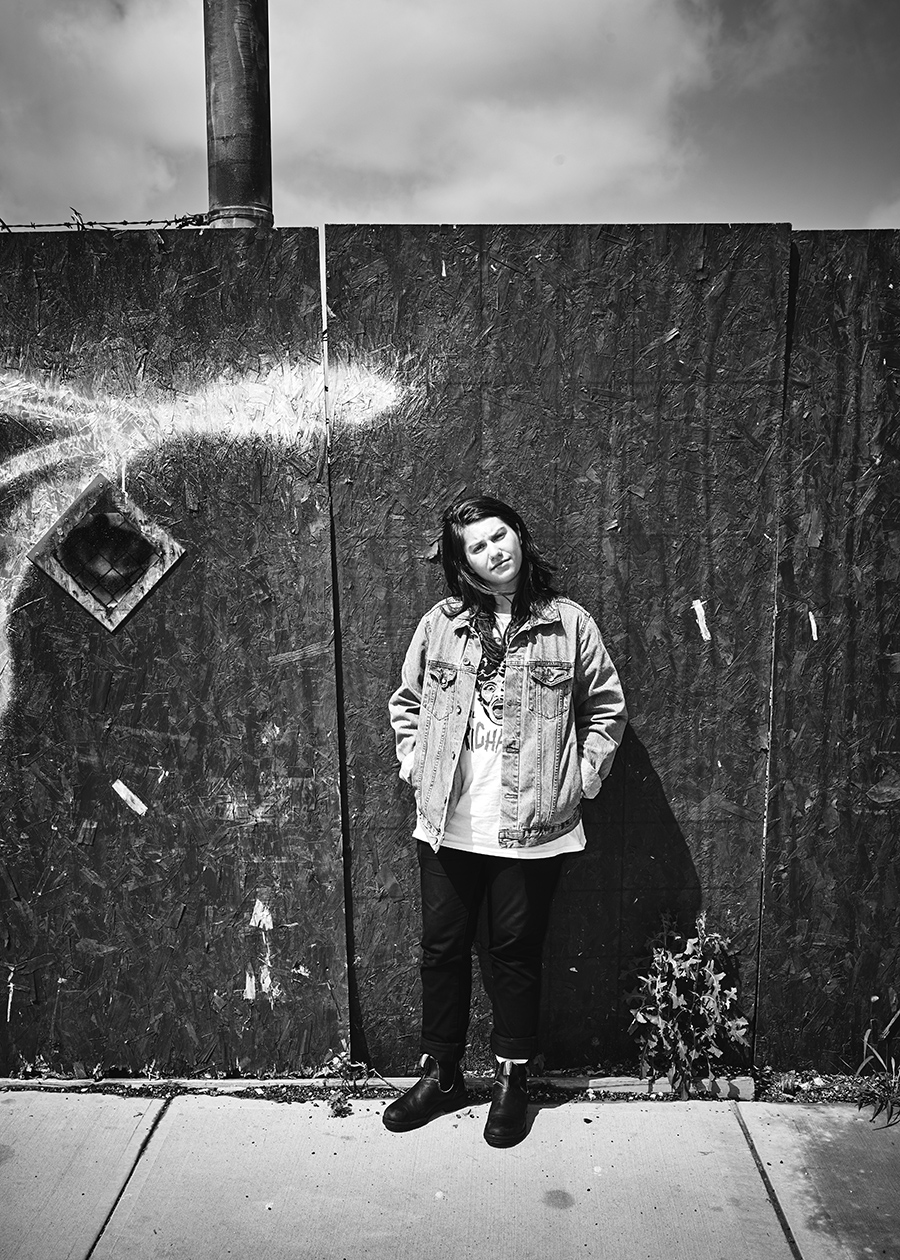
HAPPY: You’re sort of in a grey area then.
ALEX: Yeah, I am. I do think that everyone should learn to read music and theory is really valuable, and enjoyable. Some people do say it’s just feel and ear, and that’s really sick too.
HAPPY: I don’t think the debate will ever get sold. But it’s fun to talk about.
ALEX: It just depends from person to person. And I’m just a very pragmatic person, I like a system and I like a process, so for me some formal stuff suits me, and I like to follow what’s a more efficient or tried and tested way.
HAPPY: When you were learning the guitar, were there any guitarists you really looked up to? Or at least, songwriter guitarists.
ALEX: It was more songs. More songs that I really, really liked. But now, knowing more about guitar and learning things about certain people’s playing having played for a while myself… I think St. Vincent is one of the best guitar players in the world. I think one of the most underrated guitarists in the world is Courtney Barnett. She is an exceptional guitarist, and extremely unorthodox. Yeah, they’re the two people, especially St. Vincent and her attention to tone and the actual anatomy of the guitar, and the way she exploits the instrument is really effective. I really, really, really love that, I think she’s an exceptional guitar player. But Courtney… I’ve been watching some footage of her playing on the Jen Cloher tour and it’s just fucked! It’s amazing! And no one talks about how good she is, but she’s fucking off the chain! She’s so good. She doesn’t use a pick, and it’s super angular… I’ve been a fan of hers for a long time and watching someone develop their own language over time is so cool. She’s just a shredder.
HAPPY: I’ll be sure to check it out.
ALEX: There’s stuff on Instagram and shit, it’s awesome.
HAPPY: Sweet. You say you wouldn’t call yourself a guitarist, but would you say you’re more comfortable onstage with a guitar than without?
ALEX: Oh, shit yeah. It’s like a shield. It’s like a shield and weapon at the same time.
HAPPY: That’s an excellent description! So guitar talk done, you have shows with The Belligerents, the Huge and True tour, Sydney City Limits on the calendar… when’s the next break? If there is one.
ALEX: (laughs) Maybe July… at this point maybe July. Before the Huge and True tour we’re going to Europe, and after Huge and True we’re going to the States, and then we’re back. That’s late June, maybe July.
HAPPY: Well, good luck with it all.
ALEX: Thanks man.
HAPPY: And good luck with the performance!
ALEX: Easy done.
Catch Alex Lahey live on her Huge and True tour:
Fri 6 April – The Factory Theatre, Sydney
Sat 7 April – The Triffid, Brisbane
Thurs 12 April – Sooki Lounge, Belgrave – SOLD OUT
Fri 13 April – The Waratah Hotel, Hobart
Sat 14 April – The Rosemount, Perth
Wed 18 April – 170 Russell, Melbourne
Fri 20 April – 170 Russell, Melbourne – SOLD OUT
Sat 21 April – The Barwon Club Hotel, Geelong
Tickets available here.
This article and more are available in print in Happy Mag Issue 7. Grab your copy here.
